Revision Notes: Programme and Achievements of the Early Nationalists | History and Civics Class 10 ICSE PDF Download
| Table of contents |

|
| Early Nationalists |

|
| Demands of the Early Nationalists |

|
| Methods Followed by the Early Nationalists |

|
| Achievements and Criticisms of the Early Nationalists |

|
| Prominent Early Nationalists |

|
Early Nationalists
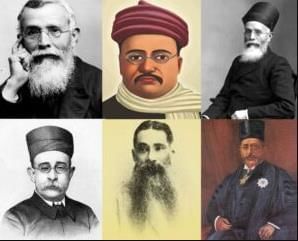
The early phase of the Indian National Congress, from 1885 to 1905, was marked by the dominance of early nationalists. These individuals were prominent figures in society, including lawyers, barristers, teachers, and officials.
Background of Early Nationalists: Many early nationalists had been educated in England, which influenced their beliefs in the British principles of justice and fair play. However, they were not fully aware of the actual conditions faced by the people in India at the time.
Notable Early Nationalists: Some of the key early nationalists included:
- W. C. Bonnerjee
- Rashbehari Ghosh
- Surendranath Banerjee
- R. C. Dutt
- Dadabhai Naoroji
- Gopal Krishna Gokhale
- Justice Ranade
- P. R. Naidu
- Ananda Charlu
- Madan Mohan Malviya
- A. O. Hume
Beliefs of the Early Nationalists
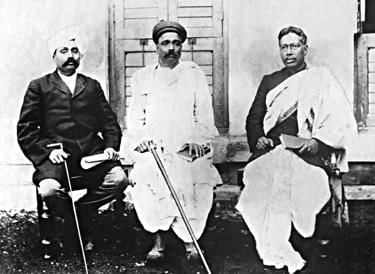
- Faith in British Justice: The early nationalists believed in the British sense of justice and fair play.
- Expectation of Home Rule: They anticipated that the British would grant 'Home Rule' to Indians.
- Positive Impact of British Rule: They thought that British rule had positively influenced Indian society by banning practices like sati and female infanticide and by raising the minimum marriageable age for girls and boys.
- Constitutional Methods: Early nationalists believed in using constitutional and peaceful methods, such as writing petitions, to express their demands.
Demands of the Early Nationalists
The early nationalists made several demands aimed at reforming the British administration in India.
Constitutional Reforms
- Abolition of the India Council: The moderates called for the abolition of the India Council, seeking greater control over Indian affairs.
- Control over Public Purse: They demanded control over the public purse, advocating the slogan, "No taxation without representation."
- Representation in Executive Council: The moderates sought adequate representation of Indians in the Executive Council of the Viceroy and the Governors.
- Demand for Swarajya: By the early 20th century, they demanded 'Swarajya' or self-government within the British Empire, similar to the status granted to Canada and Australia.
Economic Reforms
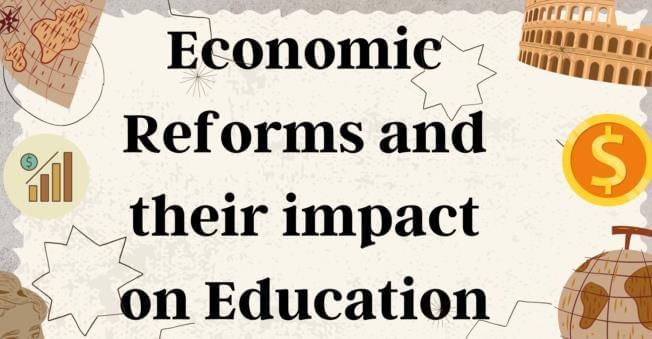
- Reduce Land Revenues: Decrease land revenues to protect peasants from the unfair demands and abuses of zamindars.
- Reallocate Army Funds: Cut down on army expenditures and use the saved money for the welfare of the people.
- Investigate Famines and Poverty: Look into the causes of recurring famines and the increasing poverty of the population.
- Improve Banking and Irrigation: Develop and provide banking, irrigation, health, and medical facilities to the people.
- Protect Indian Industries: Impose heavy trade duties on imported goods to safeguard Indian industries.
- Abolish Salt and Sugar Duties: Eliminate the salt tax and duties on sugar.
Administrative Demands

- Indian Civil Service Examinations: Hold the Indian Civil Service Examinations in both England and India at the same time.
- Separate Executive and Judicial Wings: Completely separate the executive and judicial branches of government to protect Indians from arbitrary actions by the police and bureaucracy.
- Increase Powers of Local Municipal Bodies: Enhance the powers of local municipal bodies and reduce excessive official control over them.
- Repeal Arms and Licence Acts: Repeal or annul the Arms and Licence Acts.
- Spread Primary Education: Promote primary education among the Indian masses.
Defence of Civil Rights
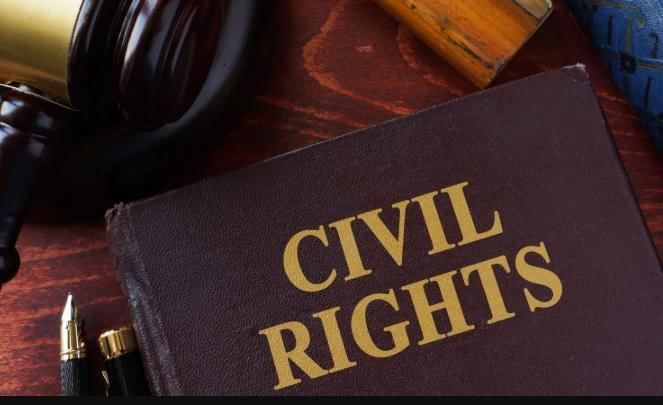
- To eliminate the restrictions imposed by the British government on freedom of speech and the press in India.
- To abolish the Preventive Detention Act and restore civil liberties in India.
- To allow Indians the right to assemble and form associations.
Methods Followed by the Early Nationalists
The early nationalists, also known as moderates, employed constitutional and agitative methods to present their demands. Their approach had two main objectives
First Set of Methods: Spreading Education among the Masses
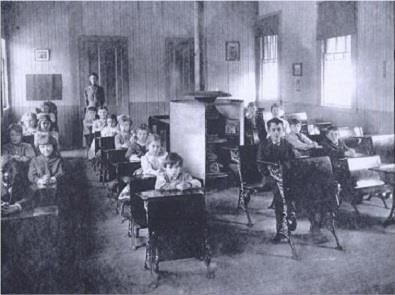
The early nationalists aimed to educate the masses in India about their issues and concerns. To achieve this, they adopted the following methods:
- Held Meetings and Delivered Speeches: They organized meetings and gave speeches to press for their demands.
- Criticized Government Policies: They used the press to criticize the policies of the government.
- Sent Memorandums and Petitions: They sent memorandums and petitions to government officials and the British Parliament.
Second Set of Methods: Influencing British Government and Policies
The second objective of the early nationalists was to influence the British government and its policies. They did this in the following ways:
- Followed the Three P’s: They engaged in Petitions, Prayers, and Protests to express their concerns about unjust government policies.
- Established a British Committee: In 1889, a British Committee of the Indian National Congress was set up in London. This committee published a weekly journal called India to present India’s case to the British public.
- Sent Indian Leaders to Britain: Indian leaders were sent on deputations to Britain to raise awareness about Indian issues. For example, Dadabhai Naoroji dedicated much of his life to informing the British public and parliamentarians about the struggles faced by Indians.
Achievements and Criticisms of the Early Nationalists
Achievements of the Early Nationalists

- The early nationalists played a crucial role in creating a sense of national awakening among the people of India, fostering the idea that they belonged to one common country. They popularized and trained the populace in the ideals of democracy, civil liberties, secularism, and nationalism.
- One of their significant achievements was exposing the true nature of economic exploitation by the British government. Dadabhai Naoroji, a prominent early nationalist, argued that the British were draining India’s wealth.
- The early nationalists also established the principle that India should be ruled in the interests of Indians. Their political and economic programs highlighted this truth.
Due to their efforts, several important reforms were enacted, including:
- The appointment of the Public Service Commission in 1886.
- A resolution in the House of Commons for holding the Indian Civil Service Examinations in India and London.
- The passing of the Indian Council Act of 1892.
Criticisms of the Early Nationalists

- The early nationalists faced criticism for their approach of using petitions and prayers to the government as a means of agitation. Critics argued that such methods would never lead to the independence of the country.
- They failed to recognize the fundamental clash between British and Indian interests, with Britain exploiting India's resources for its own wealth and prosperity.
- Additionally, they struggled to mobilize the masses into a national movement, managing only to influence a segment of urban, educated Indians.
Attitude of the Government towards the Congress
- In its early years, the British government viewed the Congress with a degree of favour, to the extent that some government officials attended the first session of the Congress.
- Lord Dufferin encouraged the Congress to focus on social issues rather than political ones. However, as the Congress became more politically active, the government’s attitude shifted, and criticism of the Congress increased.
- By 1890, government officials were prohibited from attending Congress meetings.
- To undermine the Congress, the government adopted a ‘divide and rule’ policy, encouraging figures like Sayyid Ahmad Khan and Raja Shiv Prasad of Benares to initiate anti-Congress movements.
Prominent Early Nationalists
Dadabhai Naoroji (1825–1917)
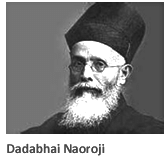 Known as the "Grand Old Man of India," Dadabhai Naoroji was born into a Parsi family. After teaching at Elphinstone College in Mumbai, he moved to England.
Known as the "Grand Old Man of India," Dadabhai Naoroji was born into a Parsi family. After teaching at Elphinstone College in Mumbai, he moved to England.- Upon his return to Mumbai in 1869, he was elected to the Mumbai Municipal Corporation and Town Council and started a magazine called Dharma Marg Darshak .
- He advocated against the Vernacular Press Act and the exploitation of peasants by zamindars.
Contributions:
- In England, Naoroji was seen as an unofficial ambassador for India, raising awareness about Indian issues in the House of Commons.
- His efforts led to the resolution for holding Indian Civil Service Examinations in India and England simultaneously.
- He was actively involved in founding the Indian National Congress, where he presided over the passing of resolutions on self-government, boycott, swadeshi, and national education.
- Naoroji authored "Poverty and Un-British Rule in India," highlighting the economic exploitation of India and how its wealth was drained to England.
Gopal Krishna Gokhale (1866–1915)
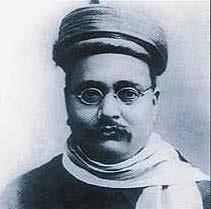
Gopal Krishna Gokhale was born in Kolhapur and worked as a professor of history and economics at Fergusson College in Pune. He was inspired by the political ideas of Justice M. G. Ranade and joined the Deccan Educational Society founded by Ranade. Gokhale later went to England on behalf of the Society to present India's views to the Welby Commission.
Gokhale became a prominent leader in the Indian National Congress and made several important contributions, including:
- Criticizing the government for its excessive spending on the army, imposing taxes on cotton, and racially discriminating against Indians in high-level appointments.
- Playing a significant role in the passing of the Minto Morley Reforms of 1909.
- Advocating against the partition of Bengal to British statesmen in London.
- Efforts leading to a reduction in toll tax.
- Requesting the government to lower land revenues in India.
Surendranath Banerjee (1848–1925)
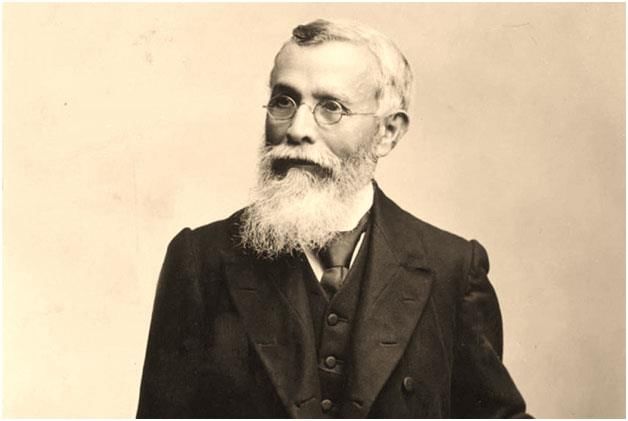
Surendranath Banerjee was a prominent nationalist leader, journalist, and dedicated educationist in India.
After passing the Civil Service Examination, he initially worked as a magistrate in Assam. However, he was dismissed from this position because he opposed the British policy of racial discrimination.
In 1921, Banerjee was appointed as the minister of self-government and health by the Governor of Bengal.
Contributions:
- Indian Association: In 1876, Banerjee founded the Indian Association to oppose the unjust policies of the British. The association aimed to educate the people and foster political consciousness and unity among Indians.
- Indian National Conference: He convened the Indian National Conference in 1883 in Kolkata to create an all-India political organization. This organization later merged with the Indian National Congress in 1886.
- Bengalee Newspaper: Banerjee edited the Bengalee newspaper, which played a crucial role in mobilizing public opinion.
- Agitations: He led agitations against the Licence Act, Arms Act, and Vernacular Press Act.
Surendranath Banerjee is popularly known as the Father of Indian Nationalism.
|
30 videos|197 docs|28 tests
|
FAQs on Revision Notes: Programme and Achievements of the Early Nationalists - History and Civics Class 10 ICSE
| 1. What were the main beliefs of the Early Nationalists in India? |  |
| 2. What were the key demands of the Early Nationalists? |  |
| 3. How did the Early Nationalists influence British government policies? |  |
| 4. What were some notable achievements of the Early Nationalists? |  |
| 5. What criticisms did the Early Nationalists face? |  |















